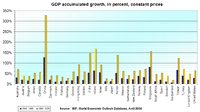
Photo from wikipedia
Abstract Root rot and charcoal rot diseases caused by Macrophomina phaseolina are the major factors that affect the growth of sunflower plants. The aim of this work was to manage… Click to show full abstract
Abstract Root rot and charcoal rot diseases caused by Macrophomina phaseolina are the major factors that affect the growth of sunflower plants. The aim of this work was to manage these diseases by employing an effective mutual strategy, in which an antagonistic and growth-promoting yeast Brettanomyces naardensis was combined with arbuscular mycorrhizal fungi (AMF), inoculated into the soil and cultivated with the crop. The results demonstrated that B. naardensis is a potent biocontrol agent for M. phaseolina that colonizes fungal hyphae, causing malformation and damage. In vitro, the yeast produced indole acetic acid and ammonia and showed good phosphate solubilization activity, confirming its growth-promoting characteristics. Dual inoculation of sunflower plants with both yeast and AMF involved in a reduction of the disease incidence of root rot and charcoal rot, caused by M. phaseolina, to 11.11% and 5.55%, respectively. Inoculation with yeast and AMF significantly enhanced growth parameters (plant height, dry weight and leaf number) in both healthy and infected plants. The results approved the induction of the immune system in sunflower plant via decreasing malondialdehyde content (MDA) and increasing the nutrient availability by dual inoculation with yeast and AMF that was confirmed by the enhancement of plant growth and alleviation of the disease symptoms. The double bioagents offer a promising biocontrol strategy in crop protection as a biofungicide and biofertilizer together in one bioformulation.
Journal Title: Biological Control
Year Published: 2019
Link to full text (if available)
Share on Social Media: Sign Up to like & get
recommendations!